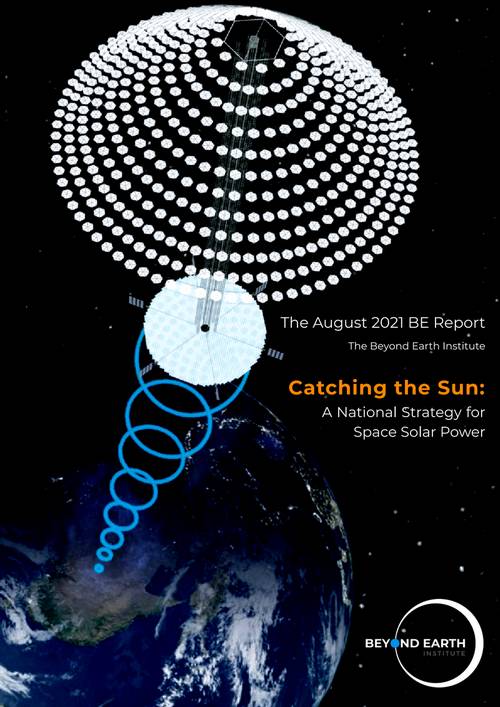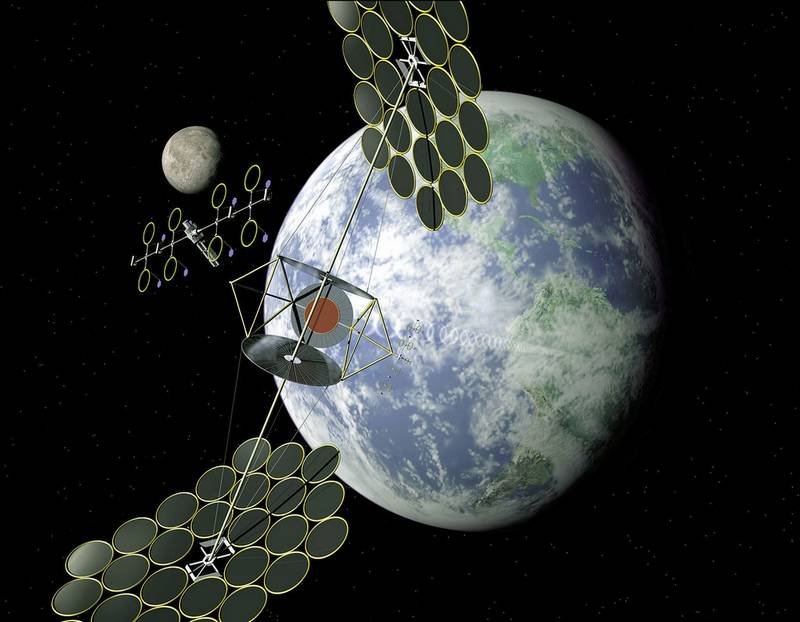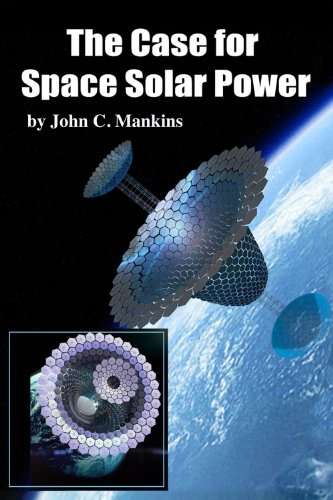
The Only Sensible Way to Deal with Climate Change
by Sylvia Engdahl
The essay below is an expanded version of a section of my essay "The Future of Being Human" in my ebook by that name. I have added it to the most recent upload of From This Green Earth because it concerns an issue that I feel deeply about. My view of this issue differs from the prevalent one, and I'm aware that some readers will think that what I propose is at best impractical and at worst a distraction from what in their opinion is a better approach to a situation they see as preventable. But if space advocates don't counter the public's unrealistic view of climate change, who will?
*
Currently there is a great deal of emotional and political turmoil over evidence that the climate of Earth is changing. It has changed before, but that was when no humans were around to be surprised. Change is a law of nature, but to most people "nature" means what they or their recent ancestors have been used to; they seem to think the state familiar to them is, or should be, guaranteed. We are learning that it is not, but this strikes most as so foreign to what they expect of the universe that they assume change must be their fault. Perhaps this is less frightening than realization that, short of science fiction speculations about terraforming, no species has the power to alter the environmental conditions of a whole planet.
The present crusade to stop climate change worries me deeply, not because I'm a "denier"--I certainly don't deny that detrimental changes in the climate are likely--but because the action commonly advocated may well do more harm than good. It makes people feel that the problem can be eliminated when in fact it cannot, and prevents them from considering the real solution to it. Adaptation to a changed climate will demand more of humankind than a futile attempt to turn back the clock that if successful, would make us even less able to cope with climate change than we are now. It will require us to move forward by the means that has made us a successful species--the overcoming of obstacles through development of new technologies.
Many people today think that if we don't lower our standard of living, climate change will ruin our planet's environment. In my opinion this particular fear is greatly exaggerated. Contrary to the widely promoted theory that climate change is due to human activity, some scientists believe it is entirely, or almost entirely, the result of natural processes. The idea that we are responsible for it is popular because it offers false hope that we can stop or reverse it, and because it provides an opportunity to vent feelings about it by placing blame.

NASA concept of a possible design for satellites that could collect solar energy in space and beam it to Earth for conversion to electric power.
That said, it would be wise to reduce pollution of the atmosphere by greenhouse gasses whether it is a significant cause of climate change or not. Furthermore, competition for fossil fuels is a major factor in international conflicts, and the supply of such fuels will eventually run out. The need to phase out our use of them is indisputable, even if it has no impact on the climate. But handling the problem of coming climate change has higher priority.
Whatever the reason, Earth is getting warmer, which may cause a rise in sea level and frequent droughts, among other effects. We can no more prevent this than we can prevent earthquakes. We may someday be able to control the weather in specific locations on a short-term basis, but the only solution to problems with the climate is to develop technologies for adapting to it, as humans have been doing since we first built shelters and learned to use fire. That is how evolution works; when environmental changes occur, a species adapts or it dies out. Through extragenetic evolution, we can choose to adapt before our survival is endangered.
Assuming that the economy is not damaged by premature abandonment of existing power sources, by the time climate change is sufficient to threaten the well-being of people in industrialized nations changes in lifestyle made possible by artificial intelligence (AI) will have begun, and the use of AI will lessen its impact. People are going to be moving away from cities, and climate change will accelerate the process. This does not mean that no one will become homeless, but that situation will have to be dealt with anyway, merely from the upheaval accompanying the introduction of AI. Moreover, AI will lead to major improvements in agriculture and food distribution that will mitigate the effects of drought.
However, the problems that will be caused by global warming will be much greater in Africa and Asia than they will be in America. At worst, a rise in sea level could force Americans to move out of waterfront cities and abandon beach homes, but in Asia large populations live in low-lying coastal areas and would have nowhere to go. Developing nations do not have the technology for dealing with high temperatures, such as air conditioning, that are already common in industrialized ones. Nor do their traditional methods of agriculture and food storage provide much leeway in case of extreme weather.
So one of the best ways of adapting to climate change would be to help the people of developing nations obtain modern technology and AI devices. But how could they afford them and the infrastructure required to make them work? I see only one solution, and it's something we should have begun long ago for the welfare of everyone in the world. We need to develop space-based solar power--as soon as possible, and on a large scale.

Solar power from space would reduce energy costs, lift developing nations out of poverty, and end pollution of Earth's environment by the use of fossil fuels.
The key to raising living standards in developing nations is power. About three billion people, mostly in Africa and southern Asia, have no access to electricity. They must use firewood, which they often spend hours gathering, for cooking and heating, and smoke-induced diseases are responsible for the death of 4.3 million people every year. Use of electronic devices is out of the question for these people, but more than that, they need power merely to gain utilities standard in the rest of the world. Yet industrialized nations rely mainly on oil and coal for generation of power, which is a major source of pollution and which will not last indefinitely. It can't be made available worldwide, nor can renewable sources such as Earth-based solar power meet the need.
Since the 1970s it has been known that solar power could be collected by satellites in space and beamed to Earth--to all parts of Earth. This would not only provide plenty of relatively inexpensive power to the nations that launched the satellites, but could raise the rest of the world out of poverty. It would enable the people of poor countries to adopt a lifestyle appropriate to the twenty-first century. Many experts have studied proposals for such a system, but it has generally been considered too expensive a project to undertake. A few, notably the late Gerard O'Neill, have pointed out that it would not be too expensive if materials obtained from the moon were used for construction of space stations in order to save the cost of lifting them out of Earth's gravity well. However, since the moon has been neglected for the past half-century, we will have to develop space-based solar power (SBSP or SSP) without the benefit of lunar resources.
This is the only option that makes sense. And it will provide more than power--it will make much-needed water accessible, too. Drinking water is not easy to get in rural areas of developing nations; in Sub-Saharan Africa 14 million women and over three million children spend more than 30 minutes a day carrying water for their households, often from ponds or streams. Water may become scarce in America, too, if climate change adds to the need for irrigation of crops. Already some cities, such as Los Angeles, depend on piping water from distant rivers; if those rivers dried up or an earthquake cracked the pipes, millions of people would die of thirst. And population growth in itself is threatening the water supply. Sooner or later it will be necessary to desalinate seawater. So far, that has been too costly; but with cheap space-based solar power it could be done.
Power satellites will also make possible the utilization of extraterrestrial resources by private industry. Entrepreneurs like those now building spaceships will mine materials from the moon and asteroids and use the profits to expand their operations in space. Eventually, through the use of AI, manufacturing will be done in space as well, and industry that pollutes will be moved out of the atmosphere into orbit where it belongs. This process could restore Earth to its natural beauty, though that won't occur until far in the future.

Solar power from space could meet Earth's long-term need for ample clean energy..
Space advocates have been arguing for SBSP for many years, and very recently (as of 2022) considerable attention has been paid to its advantages by governments, especially China, Japan, the US and the UK. Several proposals have moved past the planning stage; China now expects to have a megawatt-scale solar power test station operational by 2030. But these are extremely expensive experimental projects. No one, least of all the United States, has made a commitment to providing space-based solar power on a large scale. We have had the technological ability to do it for decades, but it would cost so much money that it's taken for granted that such a commitment would not be feasible. It should be remembered that it was once thought that going to the moon wouldn't be feasible. In any case, the cost must be viewed in relation to the tremendous cost to society of coping with a change in Earth's climate without a sustainable source of power.
The trouble, of course, is that even most space advocates don't think of SBSP as a solution to climate change, and the general public is emotionally focused on the futile and perhaps-damaging effort to make climate change go away. And this is a very dangerous situation. Even with maximum effort, it will take a long time to develop enough solar power satellites to meet the world's need for energy. If we don't start now, and devote all possible human and financial resources to it, the impact on our civilization will be devastating. We may lose the technology that would make it possible.
The space advocacy community needs to adjust its priorities; building bases on the moon and going to Mars are vitally important, but not as critical as providing enough power to prevent widespread loss of life due to climate change and maintain Earth's technological capabilities. Governments need to set new priorities--to stop squabbling over the political significance of climate-change policies and recognize that if and when climate change becomes a crisis, we must be prepared with an energy source that will enable us to deal with it. Above all, the public needs to be informed about the inevitability of changes in our environment and what it will take to mitigate them. Yes, devoting a large share of the world's economic resources to building power satellites would require sacrifices--but would that be worse than losing those resources through an attempt to survive without a sufficient source of power?
Some years ago, speculating about how advanced extraterrestrials might then view humankind, Nigel Calder wrote: "Fecklessness might be the main theme of [the aliens'] report on . . . beings who have mastered a lot of physics, chemistry and biology and yet let their children starve--while all around their planet the energy of their mother star runs to waste in a desert of space." The sun's output is part of our environment, just as the resources of our planet are, and unlike them it will not be depleted for about five billion years. We have always been dependent on it and in the future we will be dependent on using it more fully. It would indeed be irresponsible for us not to do so.
The large-scale use of energy and/or materials from space will be the first major step in extragenetic evolution since our prehistoric ancestors began using metal. It will mark the transition of humankind from a planet-bound species to a spacefaring one, a transition that is essential to the long-term survival of our species. If climate change proves to be the spur needed to make this happen, then like many other apparent misfortunes in our history, it may someday be seen as a blessing.
Copyright 2022 by Sylvia Engdahl
All rights reserved.
This essay is included in my ebooks From This Green Earth: Essays on Looking Outward
and The Future of Being Human